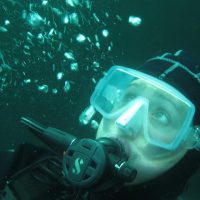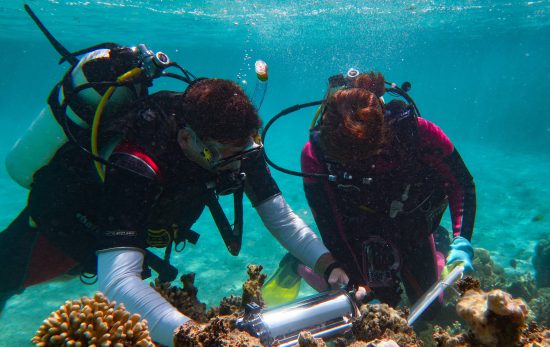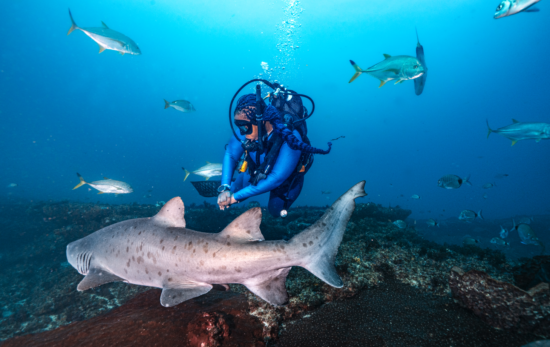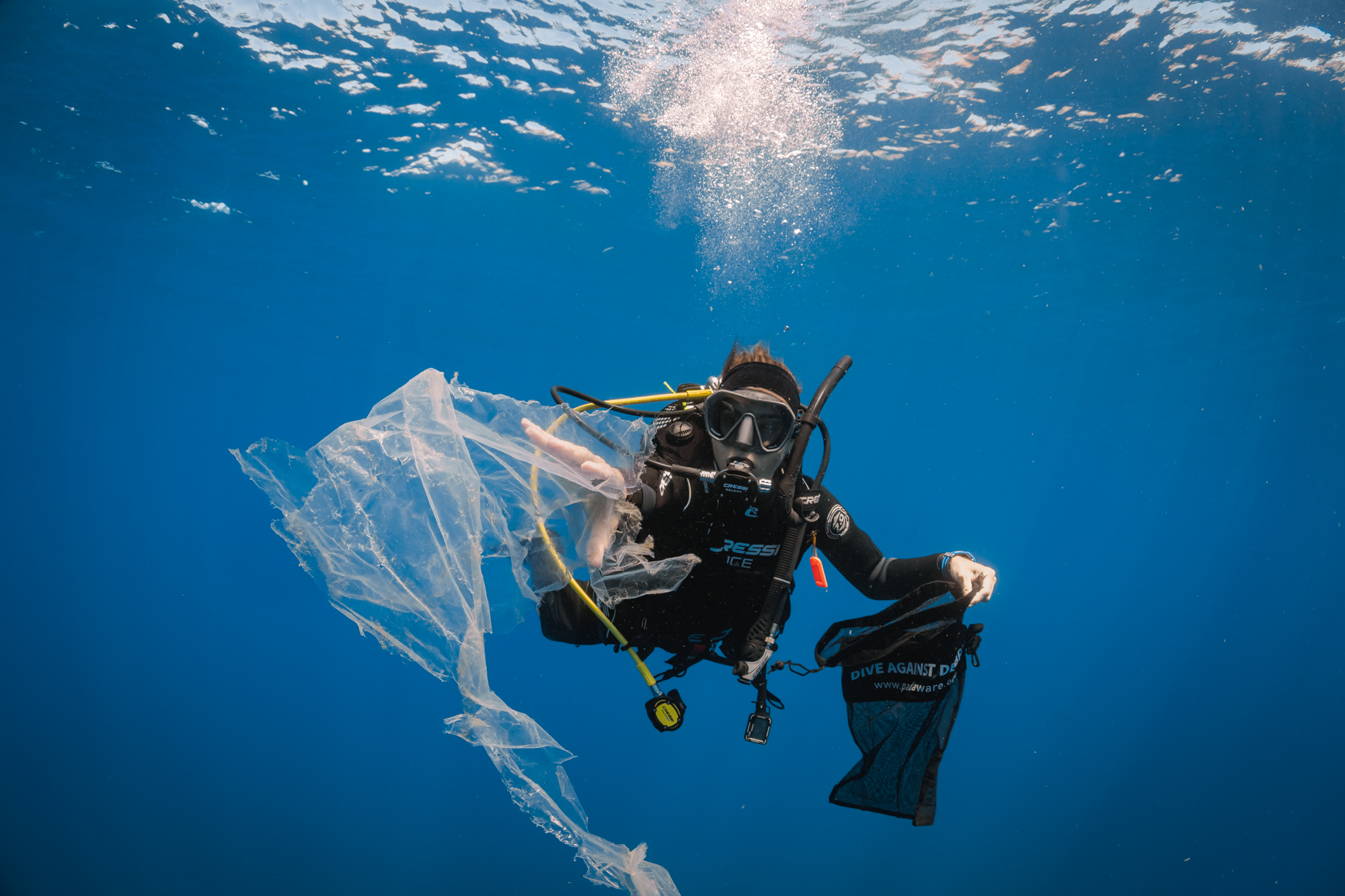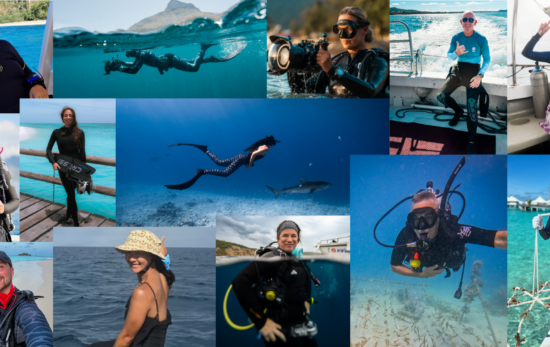Imagine you can see the entire dive site in front of you and there are no other divers in your field of vision as you move forwards. There are other scuba divers with you, it is just that they are a little behind you. Maybe it’s just your buddy, who is almost (but not quite) alongside you. Or perhaps there are a whole group of divers relying on your navigation. Either way, it’s clear the other divers are following as you lead the dive.
How do you feel in this position?
Your answer will depend partly on your current level of training and experience. As a new diver in an unfamiliar world, being at the front can be a bit disconcerting. Simply being able to see another human as you swim is a reminder that it is okay to be here. There is someone to guide and offer assistance. But, as you gain experience, you become less dependent on this reassurance and direction. You develop skills that you can use and share. Regardless of your qualifications and experience, you are probably already leading divers and here’s why …
People copy what you do
Humans copy other humans. The fact that we can learn by observing and repeating another person’s actions allows our species to learn fast. Why spend hours and days working out how to do something when you can copy someone else and be able to do it in minutes! It’s efficient.
The scuba diving community is pretty friendly, but no one likes to reveal their vulnerabilities, so it can be hard to ask for help. You’ll see this behaviour in the basic things like setting up and rinsing kit, or just knowing where to stand! If you look like you know what you are doing, you may occasionally notice a novice watching you to make sure they get it right.
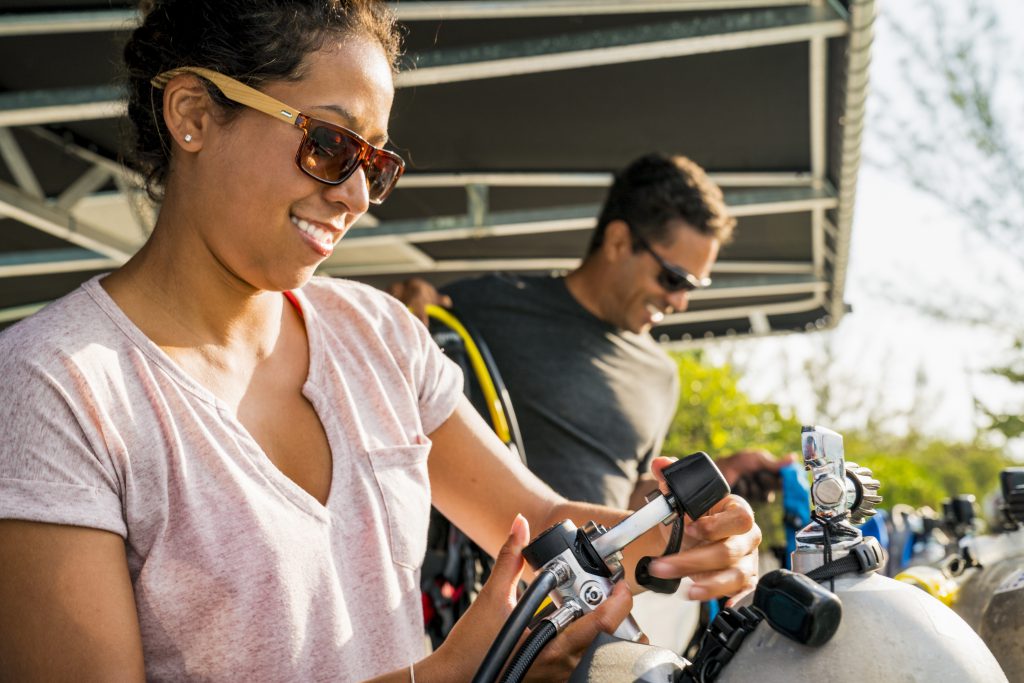
Your actions are powerful
This innate drive to do as others do means that small actions can change the world. What do the divers around you see you doing? If you break corals and harass marine life, you are sending an unspoken message that this is okay (it’s not). Alternatively, by picking up just a few pieces of litter on a dive you can fundamentally change the attitudes and actions of large numbers of people through the ripple effect.
Saying no matters
When your actions can influence others so powerfully, then choosing NOT to do something sends a strong signal. There are dangers in diving, and so it’s important to set boundaries on what you do. If the dive is beyond your limits request a change or sit out the dive. Social and psychological factors can make it very difficult to do this, but if you can do it, this gives people around you permission to do the same.
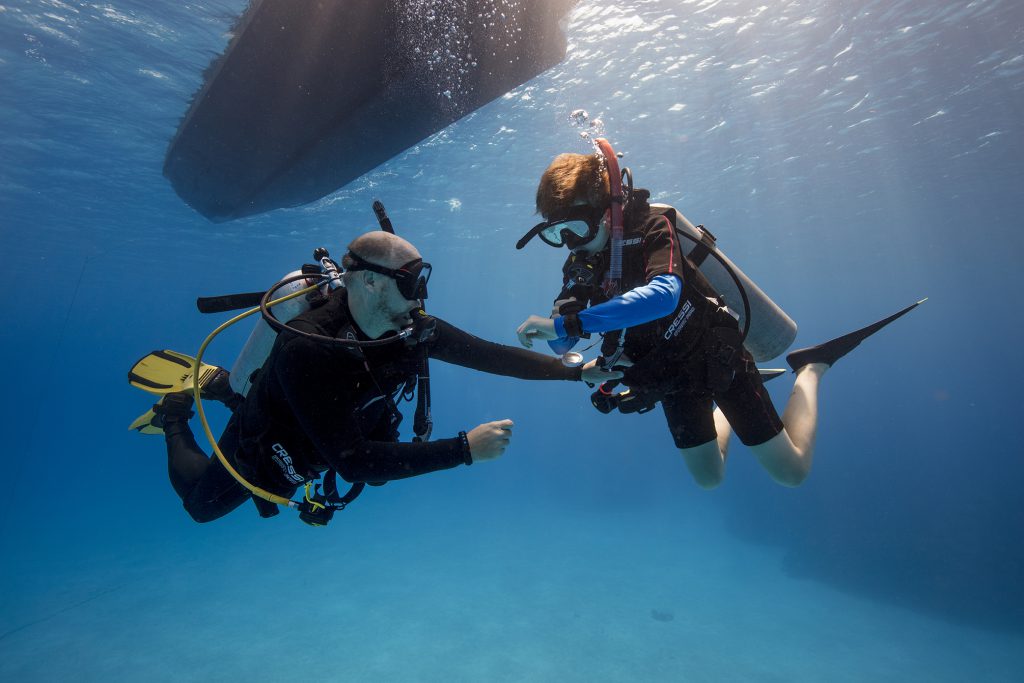
You need to know what you are doing
As you progress in scuba diving and beginning to lead other divers, then it becomes even more important to develop skills to dive independently and safely. Navigation, rescue skills, gas management, dive planning and execution … just some of the skills that all divers need to have to an extent, but must be consolidated and expanded on for divers moving into Divemaster and Instructor roles.
As a dive leader, the responsibility of guiding others safely undoubtedly increases pressure on you as a diver. If you are ready for it, that pressure will charge your skills, because it creates a reason to use them.
Even if you are not a dive leader, you can be a leader in diving.
AUTHOR BIO:
Dr. Laura Walton is a Clinical Psychologist and PADI Master Instructor with a fascination for the psychology of diving. Visit Fit To Dive to learn more about our behavior as divers.
